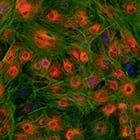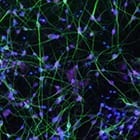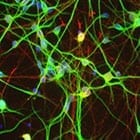Drug discovery and development is a slow and expensive business. On average, it can take at least 10 years and over $1 billion to bring a new pharmaceutical drug to market. Additionally, this process is risky because it is prone to high failure rates. The advent of the iPSC technology promises to increase the success of this process by bridging the translational gap created by cell and animal models that often do not recapitulate the expected phenotype due to species differences.
FUJIFILM Cellular Dynamics offers human iPSC-derived cells that can represent human biology more precisely and be used to develop safer and more effective therapies. iCell® products are terminally-differentiated cell types derived from human iPS cells that enable powerful new strategies for overcoming these hurdles, specifically by improving several steps in the pharmaceutical drug development pipeline. For example, disease models, designed to mimic the human body, are helping pharma understand the biology for a range of diseases and screen for the best possible drug candidates.
Because FCDI’s iPSC-derived cells are being used to make biologically relevant “disease-in-a-dish” models and are available in industrial quantities, they are superior model systems for identifying novel drugs for many conditions, such as Alzheimer’s disease, diabetes, and cardiac hypertrophy.







